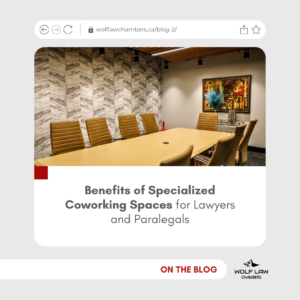FUTURE
Best Apps to Organize Legal Documents on the Go
In the fast-paced legal world, managing and accessing documents efficiently is critical. Whether you’re a lawyer, paralegal, or business professional, the right app can make all the difference. Here are some of the best apps to organize your legal documents while on the move:
- Dropbox
A tried-and-true favorite, Dropbox is perfect for securely storing, organizing, and sharing legal documents. With its robust mobile app, you can access your files anywhere, collaborate with colleagues, and integrate with other productivity tools. - Evernote
Need to organize notes and documents in one place? Evernote lets you scan, store, and categorize legal documents effortlessly. Its search functionality even recognizes text within images and PDFs, saving you time. - Clio
Designed specifically for legal professionals, Clio is an all-in-one solution. It offers document management, case tracking, and secure client communication—all accessible via its mobile app. - Adobe Acrobat Reader
When it comes to editing and annotating PDFs on the go, Adobe Acrobat Reader is unmatched. You can sign, highlight, and share legal documents securely from your smartphone or tablet. - Notion
For customizable document organization, Notion is a great choice. It allows you to create shared workspaces, track tasks, and keep case-related notes neatly organized. - ScanSnap
If you often deal with physical documents, ScanSnap turns your phone into a portable scanner. It captures high-quality scans and integrates with storage apps like Dropbox and Google Drive for seamless file management.
Pro Tip: Always ensure your apps comply with data security and privacy regulations like GDPR or HIPAA to protect sensitive legal information.
#LegalTech #ProductivityApps #DocumentManagement
The Future of Coworking Spaces in the Legal Sector
Coworking spaces have revolutionized industries, and the legal sector is no exception. As remote work and flexible office arrangements grow, legal professionals are embracing coworking spaces for their unique benefits.
Collaboration Beyond Firms
Traditional law offices can be isolating, but coworking spaces foster interaction across disciplines. Lawyers can network with tech experts, financial advisors, and startups, enabling cross-industry collaboration. This ecosystem sparks innovation in client solutions and legal tech advancements.
Cost-Efficient and Scalable
For solo practitioners and small firms, coworking spaces offer a cost-effective alternative to maintaining a private office. Flexible leases, shared amenities, and pay-as-you-go models reduce overhead while offering scalability as teams grow.
Tech-Ready Environments
Coworking spaces often come equipped with cutting-edge technology.
Adapting to Client Expectations
Clients increasingly value convenience and modernity. Meeting rooms in coworking spaces provide a professional yet accessible setting that appeals to tech-savvy and younger clientele.
As the legal profession adapts to changing work trends, coworking spaces are poised to play a pivotal role in its transformation. They offer a balance of flexibility, innovation, and professionalism, aligning perfectly with the future of legal work.
#LegalTech #CoworkingSpaces #FutureOfWork
How to Choose the Right Coworking Space for Your Legal Practice.
As a legal professional, your choice of workspace plays a crucial role in building trust, maintaining confidentiality, and growing your practice. Here’s how to choose the perfect coworking space for your needs:
1. Evaluate Location
Choose a space in a professional neighborhood that’s easily accessible for your clients and provides proximity to courthouses or other legal hubs.
2. Consider Professional Amenities
A good coworking space for legal professionals should offer essential amenities like:
- On-demand meeting rooms for client consultations.
- Printing, scanning, and storage options for legal documents.
- Reception services to create a polished first impression.
3. Network Opportunities
Some coworking spaces host networking events or house professionals from complementary fields, such as finance or real estate, which could generate referrals for your practice.
4. Test the Culture
Ensure the environment aligns with your professionalism. Visit the space, observe its vibe, and assess whether it supports focused, high-quality work.
Choosing the right coworking space isn’t just about functionality; it’s about finding a place that supports the credibility and efficiency of your practice. Take your time, weigh your options, and invest in a space that sets you up for success.
Benefits of Specialized Coworking Spaces for Lawyers and Paralegals
As the legal profession evolves, specialized coworking spaces are gaining traction as a valuable resource for lawyers and paralegals. Unlike traditional offices or generic coworking hubs, these tailored environments offer unique benefits that address the specific needs of legal professionals.
1. Professional Atmosphere
Specialized coworking spaces cater to the professional standards of the legal industry. They provide private offices, meeting rooms, and settings that exude credibility—ideal for client consultations and sensitive discussions.
2. Cost-Effective Solutions
For solo practitioners and small law firms, renting a full-fledged office can be costly. Coworking spaces offer flexible memberships, enabling legal professionals to access high-end facilities without the financial burden of long-term leases.
3. Access to Legal Resources
Many specialized spaces provide access to tools like legal research databases, court filing assistance, and even notary services. These resources streamline day-to-day tasks, allowing teams to focus on casework.
4. Networking Opportunities
Sharing a workspace with other legal professionals fosters collaboration and networking. Whether it’s exchanging insights or referring clients, the connections formed in these environments can lead to valuable partnerships.
5. Enhanced Productivity
Designed with the legal workflow in mind, these spaces minimize distractions and support focused work. Amenities such as ergonomic furniture, high-speed internet, and secure file storage further enhance efficiency.
Specialized coworking spaces are more than just a trend—they’re a smart solution for modern legal professionals seeking flexibility, professionalism, and community. If you’re a lawyer or paralegal looking to elevate your practice, consider exploring these tailored spaces to meet your needs.
How Coworking Spaces Foster Collaboration Across Legal Areas of Practice
Coworking spaces are transforming the way professionals across various industries collaborate, and the legal field is no exception. Traditionally, law firms have been separate, hierarchical entities, often operating in silos. However, coworking spaces are encouraging lawyers from different practice areas to connect, share knowledge, and collaborate on projects.
One of the primary advantages of coworking spaces is the diverse community they bring together. Legal professionals from corporate law, intellectual property, criminal defense, and other specialties work side by side, creating opportunities for cross-disciplinary collaboration. By networking in a casual, open environment, lawyers can exchange ideas, seek advice, and even partner on cases that require expertise from multiple legal fields.
These shared spaces also help break down traditional barriers that can limit collaboration. Many smaller law firms or solo practitioners don’t have the resources to establish large office networks, but coworking spaces provide affordable, flexible environments where legal professionals can interact with colleagues they might not have met otherwise. Whether through informal conversations in the kitchen or during organized networking events, the physical proximity sparks connections that benefit the legal community.
Moreover, coworking spaces often host workshops, seminars, and panel discussions on various legal topics, providing an additional avenue for collaboration. These events allow legal professionals to stay updated on trends, enhance their skill sets, and collaborate on shared interests.
In conclusion, coworking spaces are more than just shared offices. They are vibrant hubs that encourage collaboration across different legal areas, leading to innovative solutions and more effective legal practices. By fostering a sense of community and shared knowledge, these spaces are helping reshape the future of legal work.
Building Client Trust in a Coworking Environment
In a coworking environment, trust is the foundation of successful client relationships. For legal professionals such as lawyers and paralegals operating in shared spaces, building trust is not just beneficial but essential to foster a sense of credibility and loyalty. Here’s how you can strengthen trust with your clients in a coworking setup:
1. Consistent Communication
Maintain open and transparent communication with your clients. Regular updates on case progress, prompt responses to inquiries, and clarity in legal advice create a strong impression of reliability. Whether through emails, scheduled consultations, or shared platforms, ensure your clients feel heard and informed.
2. Deliver on Promises
Reliability is key. If you commit to deadlines or specific case milestones, ensure you meet them. Under-promising and over-delivering can further enhance your credibility and establish a reputation for professionalism and excellence.
3. Leverage the Community
Coworking spaces offer a unique opportunity to connect clients with other professionals, including those in complementary fields such as finance or real estate. By introducing your clients to relevant resources or collaborators within the space, you demonstrate value beyond the immediate legal relationship, enhancing their trust in your network and capabilities.
4. Personalized Interactions
Take the time to understand your clients’ unique legal needs and preferences. Tailoring your approach to address their specific concerns shows dedication and builds stronger emotional connections.
5. Foster Transparency
Be honest about legal processes, potential outcomes, and any challenges you may face. Clients value authenticity, and addressing concerns proactively fosters a deeper sense of trust and confidence in your expertise.
In the dynamic world of coworking, trust is built over time through consistent actions and genuine connections. By prioritizing communication, reliability, and community, you not only enhance client relationships but also contribute to a thriving coworking ecosystem for legal professionals.
Time Management Tips for Lawyers in Coworking Spaces
For lawyers balancing casework, client meetings, and court schedules, effective time management is non-negotiable. Operating out of a coworking space adds another layer of complexity, with its unique distractions and opportunities. Here are some practical tips to help lawyers make the most of their time:
- Leverage Private Spaces Most coworking spaces offer private rooms or phone booths. Schedule these for client calls or focused work to minimize distractions and maintain confidentiality.
- Utilize Scheduling Tools Platforms like Calendly or Google Calendar are great for managing client appointments and syncing team schedules. Use time-blocking techniques to dedicate slots for research, writing, and client interactions.
- Set Boundaries Coworking spaces can be social hubs. Politely set boundaries with other members during your peak productivity hours to avoid unnecessary interruptions.
- Take Advantage of Amenities Many coworking spaces provide services like printing, scanning, and legal databases. Familiarize yourself with these amenities to streamline your workflow and save time.
- Network Strategically Networking can be a valuable use of time when done intentionally. Participate in events or connect with professionals whose expertise complements your legal practice.
- Embrace Technology Use cloud-based legal software for case management and document sharing. These tools allow you to work seamlessly between the coworking space, court, and home.
- Take Breaks Regular breaks are essential to stay sharp. Coworking spaces often have lounges or quiet zones—make use of them to recharge.
By implementing these strategies, lawyers can maximize their productivity and thrive in the dynamic environment of coworking spaces.
Creating a Professional Setup in a Coworking Space: Tips for Lawyers
In today’s fast-paced world, coworking spaces have become a popular choice for professionals across industries, including lawyers. With their flexibility, cost-effectiveness, and collaborative environment, these spaces offer a dynamic alternative to traditional offices. However, for legal professionals, maintaining a professional image and ensuring confidentiality are crucial. Here are some practical tips to create a professional setup in a coworking space tailored to your legal practice.
1. Choose the Right Coworking Space
Not all coworking spaces are created equal, especially for lawyers. Look for spaces that offer private offices or soundproof meeting rooms to ensure client confidentiality, a professional ambiance that aligns with your brand, high-speed internet, secure file storage, printing/scanning options, and a location convenient for both you and your clients.
2. Set Up a Designated Work Area
Even in a shared space, creating a defined workspace can boost productivity and professionalism. Invest in ergonomic furniture like a comfortable chair and desk. Organize your workspace with folders, document organizers, and digital tools to keep client files secure. Add personal touches, such as a desk plant or framed certificates, to make your area feel professional and inviting.
3. Prioritize Confidentiality
Maintaining client confidentiality is paramount for lawyers. Use noise-canceling headphones or a white noise machine to mask conversations. Rely on secure Wi-Fi connections and encrypted tools for digital communication. Hold private meetings in dedicated conference rooms rather than open areas.
4. Optimize Your Digital Presence
Coworking spaces are often designed for networking, and having a professional online presence will amplify your credibility. Ensure your email signature, LinkedIn profile, and website highlight your legal expertise and contact details. Use a professional backdrop for virtual meetings, especially when in open coworking areas.
5. Take Advantage of Networking Opportunities
Coworking spaces are hubs for innovation and collaboration. Attend events and workshops to build connections that could benefit your practice. Engage with other professionals who might need legal services or refer clients to you.
6. Manage Time Effectively
Balancing multiple clients and tasks requires a structured schedule. Use digital calendars and time-blocking techniques to organize your day. Set specific hours for consultations, drafting, and court preparations to avoid disruptions.
7. Make the Most of Amenities
Coworking spaces often include amenities that can enhance your work experience. Use mail handling services for a professional mailing address. Take advantage of on-site tech support for any equipment issues. Enjoy break areas and wellness programs to recharge during a busy day.
8. Build a Professional Image
Your surroundings play a significant role in how clients perceive you. Opt for clean, minimalistic attire to complement the coworking space’s professional environment. Utilize branded stationery and business cards to reinforce your identity.
Conclusion
A well-thought-out setup in a coworking space can help lawyers maintain professionalism, build a strong client base, and thrive in their practice. By focusing on confidentiality, organization, and leveraging the amenities provided, you can create a workspace that supports both productivity and a polished image.
Coworking spaces are more than just desks and chairs—they’re a gateway to innovation and growth. With these tips, you’ll be well-equipped to make the most of this modern work environment.
Have you set up a coworking space for your legal practice? Share your experiences and tips in the comments below!
Networking Opportunities: How Coworking Spaces Can Benefit Solo and Small Law Firms
For solo practitioners and small law firms, building a strong professional network is essential for growth and success. However, working in isolation—whether from home or a small office—can limit opportunities for meaningful connections. Coworking spaces offer a dynamic solution, providing more than just workstations. They create ecosystems that foster collaboration and open doors to valuable relationships.
Why Networking is Crucial for Lawyers
In the legal profession, networking extends beyond meeting potential clients. It includes building partnerships with other professionals who can refer cases, collaborate on projects, or offer insights into complex legal matters. A strong network can also provide mentorship and exposure to emerging trends, helping lawyers stay competitive and innovative.
Coworking Spaces: Networking Hubs for Legal Professionals
1. Connect with Diverse Professionals
Coworking spaces host individuals from various industries—tech entrepreneurs, creatives, consultants, and more. This diversity introduces lawyers to potential clients or collaborators they wouldn’t typically meet in a traditional office. For example, a tech startup founder might need legal advice on intellectual property or compliance.
2. Organic Networking Opportunities
In coworking spaces, conversations often spark naturally—whether over coffee in the lounge or during community events. For lawyers, these informal interactions can lead to referrals, partnerships, or even new clients.
3. Access to Legal Peers
Some coworking spaces cater specifically to professionals, including other solo or small law firms. Sharing a workspace with legal peers creates opportunities for case consultations, mentorship, and even collaborative representation on large cases.
4. Professional Development Events
Coworking spaces frequently host workshops, panels, or networking events. Attending these activities allows legal professionals to showcase their expertise, learn new skills, and connect with other industry leaders.
Beyond the Office: Building a Stronger Network
Coworking spaces offer an environment that blends productivity with connection. For solo and small law firms, they provide a pathway to expand professional networks without the traditional constraints of office settings. By leveraging these opportunities, legal professionals can build relationships that enhance their practice and broaden their horizons.
In Summary: Coworking spaces are more than just work environments—they’re gateways to growth. For lawyers looking to expand their networks, gain referrals, or stay inspired, coworking spaces are a smart investment in their professional journey.
Cost-Saving Tips for Lawyers Renting a Coworking Space in Canada.
As a lawyer, managing office space costs can be challenging, especially with rising overhead expenses. Renting a coworking space is a flexible and cost-effective alternative to traditional office leases. However, it’s important to make smart decisions to maximize savings while still maintaining a professional environment. Here are some practical cost-saving tips for lawyers renting a coworking space in Canada.
1. Choose the Right Location
Location plays a crucial role in the cost of renting a coworking space. In large cities like Toronto, Vancouver, or Montreal, prices can vary significantly based on the neighborhood. Consider choosing a location just outside the city center or in a growing area to reduce rental costs. Alternatively, look for spaces that are well-connected by public transit, saving both money and time on commuting.
2. Opt for Flexible Membership Plans
Most coworking spaces offer flexible membership options, allowing you to choose between hot desks, dedicated desks, or private offices. For lawyers, the flexibility to scale up or down is essential, especially if you’re just starting out or working solo. By opting for a hot desk or shared workspace, you can save on costs while still enjoying the benefits of a professional setting. Many coworking spaces also offer day passes, allowing you to pay only for the days you need, which can be ideal for lawyers who don’t require full-time office space.
3. Take Advantage of Shared Amenities
Coworking spaces typically offer shared amenities like meeting rooms, high-speed internet, printing services, and kitchens. Instead of leasing a separate meeting room or investing in office equipment, you can use these shared resources as part of your membership. This can save you significant amounts on things like phone bills, printing costs, and office furniture. Look for a coworking space that offers the amenities you need without paying for extras you won’t use.
4. Negotiate Your Contract
Don’t settle for the first price you see. Coworking spaces are often open to negotiation, especially for longer-term commitments. If you plan to stay for an extended period, you may be able to secure a discount or additional perks, such as access to premium meeting rooms or other exclusive facilities. If you’re a sole practitioner or small firm, discuss your specific needs and see if the space can accommodate them at a reduced rate.
5. Consider Virtual Office Services
Many coworking spaces offer virtual office services, which can be a great option for lawyers who don’t need a physical office every day. Virtual offices typically include services like mail handling, a professional business address, and phone answering. This allows you to maintain a professional image without the expense of renting full office space. It’s an especially useful solution for lawyers who work from home but need an official address or client-facing services.
6. Look for Coworking Spaces with Legal-Specific Services
Some coworking spaces cater specifically to legal professionals. These spaces may offer features like law library access, compliance tools, and networking opportunities with other lawyers. While these spaces may come at a premium, they often have tailored services that can help reduce costs in other areas, such as administrative work or access to legal resources. Look for spaces that offer industry-specific benefits, which could enhance your efficiency and lower overall business costs.
7. Collaborate with Other Professionals
Lawyers working in coworking spaces often have the chance to connect with other professionals, such as accountants, financial advisors, or business consultants. Building a network of trusted professionals can help you share costs and collaborate on projects that benefit your practice. By working together, you can access shared resources or offer each other discounted rates for services like legal research, marketing, or accounting.
8. Evaluate Long-Term Savings
While coworking spaces may appear more expensive upfront than traditional office leases, they can offer significant long-term savings. With fewer upfront costs for equipment, furniture, and utilities, you can invest your capital in growing your business. Additionally, coworking spaces often allow for easier expansion if you need additional space or services. This scalability allows your practice to grow without the risk of committing to long-term, costly leases.
Conclusion
Renting a coworking space as a lawyer in Canada can be a smart way to save on overhead costs while maintaining a professional environment. By choosing the right location, opting for flexible membership plans, utilizing shared amenities, and negotiating your contract, you can reduce expenses and enhance your practice’s efficiency. With the right approach, coworking spaces offer the opportunity to build a successful law practice without breaking the bank.










